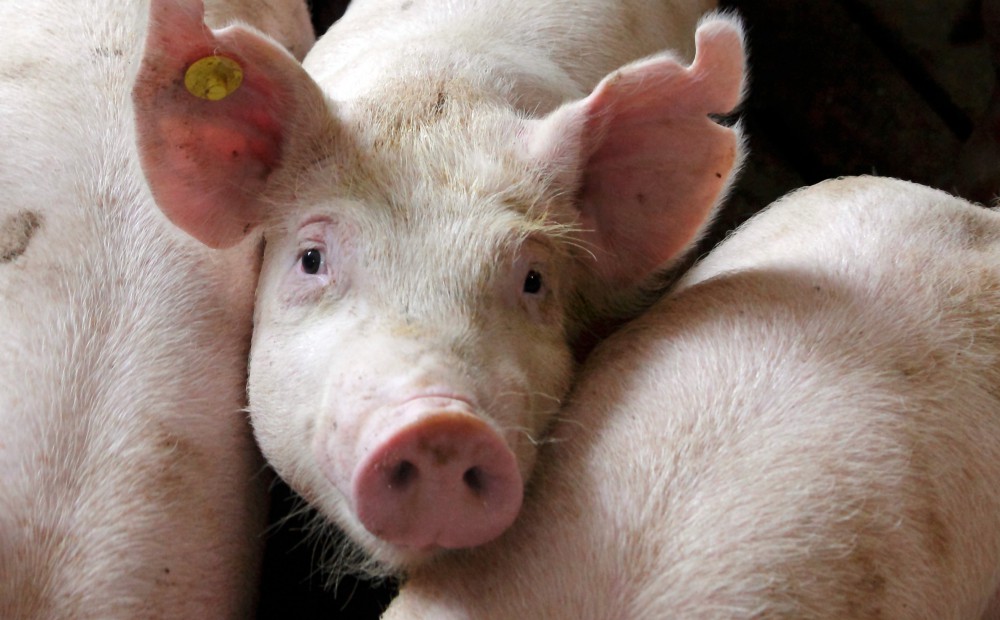If you are considering engaging in pig farming business then probably you’re worried about many things. Is there a ready market? How much capital is required to start small? How has the Kenyan industry fared over the last 1 year? Well, look no further because this article has answered all these questions albeit briefly.
1.How's the industry performing currently?
The pig market has been out-performing other notable markets, including poultry farming and real-estate, since 2010. However, the industry seems to have stabilized between 2014 and 2015 although it is still clear that demand currently outstrips supply.
There are great opportunities for investors who are ready to work extra hard i.e. in keeping quality breeds, marketing, value addition, innovation and perfect timing.
2.What are the basic requirements?
You need at least a 40ft by 60ft piece of land to construct some sheds and a store for your farm. Make sure this piece of land is located in a quiet place and that there is adequate supply of water. Availability of good transport infrastructure is also an important factor to consider.
3.How can I get started? (Ideal Budget: Ksh150,000)
Assuming you have a piece of land and some properly built sheds in place, the next important thing to do is to buy at least two pregnant sows. Each sow goes for about Ksh50,000 at the prevailing market price meaning that you’ll require about Ksh100,000 just to purchase the animals. You’ll also require an additional Ksh50,000 to cater for transport, feeds etc.
Within a few months, your sows will produce about 11 piglets each and therefore your community of pigs will have grown to 24. From that point, you’ll have to wait for about 7 months for the piglets to mature and be ready for sale.
The most preferred breeds in the market are Landrace, Yorkshire and Duroc.
4.Can I Get Training?
Yes. There are several agencies and entities that train farmers on the best practices of pig rearing. You may want to contact the Department of Livestock, which is located at Hill Plaza 7th floor for more professional advice on pig rearing and marketing.
Also, one of the commercial pig companies in the country – Farmer’s Choice – provides free educational material on this topic.
If you would like entrepreneurial training that spans beyond what other agencies offer you then you can link up with Kuza Biashara for more free training material and “How-To Videos”.
5.How Are Pigs Fed?
Pigs are best feed with rice bran which can be bought in Mwea Rice Fields (Kirinyaga County) for Ksh450 for 70kg or Ksh1,600 for the same quantity in Nairobi. Mix the bran with maize germ, pollard, molasses and mineral supplements.
Cabbage can also be added and it costs between Ksh100 and Ksh150 per bag at your local Wakulima market. Pigs are fed once a day and provided with clean drinking water.
6.Is There Market?
Yes, there is market. In fact in some cases current farmers have remarked that “demand currently exceeds supply.” You can decide to sell your piglets to other farmers – each piglet goes for Ksh5,000.
Alternatively, you can sell pregnant sows for Ksh50,000 to farmers who are just starting. But that’s not all – here are some alternative pig markets available in Kenya.
When slaughtered a 60KG carcass goes for Ksh13,800 on average. While one that weighs 70KG goes for Ksh16,100. Assuming that you slaughter your entire first breed of 22 pigs, each weighing 70kgs then you can expect to make Ksh354,200 in the first 7 months of investing.
-Commercial Firms
The biggest commercial pig buyer in Kenya is Farmer’s Choice with a demand of 500 pigs per day. Another commercial entities that buy directly from farmers are Oscar Chef’s Choice, Hurlingham Butcheries and Olive Enterprises (Limuru).
-Local Abattoirs
Confirmed abattoirs or slaughterhouses that buy pigs from farmers include:
- Ndumboini Farm Slaughter House – Kikuyu, Kiambu County
- Lyntano Slaughter House – Nairobi
- Kabati Slaughter House – Murang’a
- Kitengela Pig Slaughter House – Yukos, Kitengela, Kajiado County
There is also wider opportunities for those who want to engage in value addition through branding, special packaging and even exporting to neighboring countries.
Some other quick takeaways include:
- Boars (male pigs) should be castrated if they’re not kept for mating so they don’t waste a lot of energy chasing after sows.
- Pigs should be dewormed after every two months to avoid parasites and diseases.
- Piglets should be left to breastfeed for at least two months.
- Payback period (i.e the period you have to wait to recover your initial investment) is 2 seasons or roughly 14 months.
Final Word;
Pig Farming is a business like any other. You need to do a Feasibility study before you proceed to invest. However, as you can see, the returns are attractive and the future for pig-ntrepreneurs looks really bright.
Your thoughts…



















